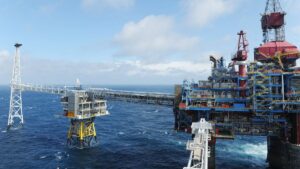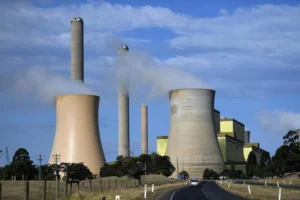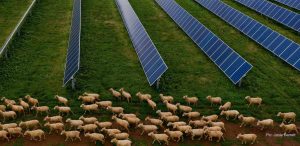The federal government has provided additional funding to support collaboration between researchers and industry to accelerate the adoption of new low emissions technologies that can help boost energy productivity, lower prices and improve energy system reliability.
Federal minister for industry, science and technology Karen Andrews announced the $68.5 million funding commitment that will fund the ‘Reliable Affordable Clean Energy for 2030’ Cooperative Research Centre, that will fund research collaborations between universities and the energy industry.
Dubbed the “RACE for 2030″, the research collaboration will work to directly address the aspects of the ‘energy trilemma’, improving the reliability, costs and reducing the emissions footprint of the Australian energy system.
Announcing the federal government funding in Brisbane, the minister Karen Andrews said that the focus of the research was about lowing the cost of energy and increasing the reliability of the electricity system.
“The cost and reliability of energy is a vital component of running a business. Reducing energy costs for businesses means more money for investment, more production and more jobs – essential elements of a healthy and growing economy,” Andrews said.
“For Australian families, this clean energy research offers the opportunity to reduce their carbon footprint, while also lowering their power bills and freeing up more money in the household budget.”
The CRC will serve as a collaboration between research institutions and industry partners and will target funding towards research into boosting the energy productivity of businesses, improving the integration of distributed energy resources, like solar and battery storage, into the wider electricity grid.
The research collaboration will work under four core themes, targeting business energy use, household energy use, networks and the development of a “customer-centred” energy system.
“We’re committed to sensible, practical solutions that reduce emissions, cut power bills, and protect and create jobs,” federal energy minister Angus Taylor added.
“We have seen wholesale prices for electricity reduce by an average of 35 per cent on the east coast over the last quarter compared with the same time last year. The CRC’s work will assist in unlocking new technologies for reliable generation to continue this downward cost trend and keep the lights on.”
The University of Technology Sydney will serve as the lead research institution in the CRC, with former founder and CEO of energy consultancy Energetics Jonathan Jutsen, serving as the centre’s inaugural CEO.
“RACE for 2030 is a critically important initiative to bring innovation to households and businesses to reduce energy costs, to reduce emissions and to improve the network reliability. We want to bring the latest in technology and applications to improve the way that we use energy across the economy,” Jutsen said at the CRC’s launch.
“We’re looking at applications to optimise the way that your solar could be used to get best utilisation of that solar. For example, to be able to use smart applications so that your air conditioning could be used in the afternoon when you’ve got sun on the roof, and be able to cut down your consumption at night time when the grid is under pressure and electricity prices are high.”
“We’re also looking at all sorts of technologies for implementing improvements in manufacturing and other businesses.”
The research centre has already built partnerships with around 90 organisations, including research institutions, utility companies, technology and service providers and several state governments.
The centre expects to leverage private sector support for its research, aiming to receive up to $4 of private sector funding for each $1 of federal government funding and has already received $280 million in cash and in-kind contributions from industry and researchers.
The CRC will work towards a stated vision of “a customer-centred clean energy transition”, with the funding announcement following the Morrison government’s decision to renege on the last two years of previously committed funding provided to the Energy Transition Hub.
Questions have also been raised over the future of the Australian Renewable Energy Agency (ARENA), which is expected to exhaust its own funding allocations by the middle of the year. ARENA has been the primary funder of renewable energy research and development since its establishment in 2012, but the Morrison government has yet to provide any indication of any additional funding allocations.
The Morrison government has sought to reorient the focus of its response to climate change to the development of new technologies, planning to present a “technology innovation target” to the next round of international climate change negotiations, but there has yet to be any indication of how such a target may be designed.










